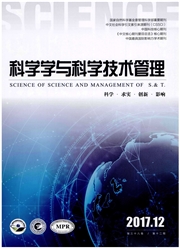

 中文摘要:
中文摘要:
旨在通过划界工作讨论科技政策中的基本概念“孵化器”在学术话语中的本质属性问题。通过对五本科学学类期刊的扎根理论分析,发现“孵化器”在学术期刊中并非是一种共识。原因在于,学术话语呈现出的概念界定远比官方话语更加纷繁,并具体表现为以“辩护型”为特征的“立足国情”范畴和“仲裁型”为特征的“引入国外”范畴两种。引入了“身份”变量后则发现“孵化器”也不是一种边界物,因为学者身份下的话语呈现依然很大程度上重合于政府身份下的话语。这表明了边界物存在的前提——异质化的社会世界——并不存在。故而,社会世界的扭曲乃是科技政策咨询中专家身份困惑的根源,亦是问题解决的关键。
 英文摘要:
英文摘要:
In science and technology policy, 'incubator' is a basic concept. But its connotation and denotation in academic discourse still needs boundary work to explain. Based on Grounded Theory, this study finds that there is no consensus of 'incubator' in academic journals, because the connotation of 'incubator' in journals is more complicated than the definition in policies. Basically, there are two kinds of categories. The one is 'Based on national conditions' which is characterized by 'issues defend', the other one is 'Introduction of foreign' which is character- ized by 'science arbitration'. After introduce the 'identity' variable, this study finds that the 'incubator' in journals is also not a boundary object, because the discourses from universities and institutions are largely same to the dis- courses from governments. This means that .there are no heterogeneous social worlds in this arena, which is the premise of a boundary object. So the identity confusion of experts in science and technology policy advice is rooted in the distortion of the social world of experts, and this is also the key to solve the problem .
 同期刊论文项目
同期刊论文项目
 同项目期刊论文
同项目期刊论文
 期刊信息
期刊信息
